Diving Into The Aquarium Trade
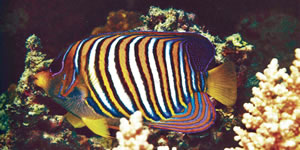
An emperor angelfish
It’s always rewarding when you discover an unexpected treasure. It’s even more satisfying when that treasure includes information that inspires you to step out of your comfort zone and ask questions.
For the past few weeks, I’ve scanned the cover of a colorful book sitting on my desk, curious as to what was waiting for me once I dove in. I’m glad I finally did.
Every Fish Tells A Story is an absolute gem written by ocean and reef conservationist Robert Wintner, the owner of the only fin and snorkeling manufacturing company in Hawaii. Most know him simply as Snorkel Bob. The 253-page book is filled with incredible photographs of tropical ocean creatures and highlights the beauty of Hawaii’s reef the vast majority of photos were shot by him.
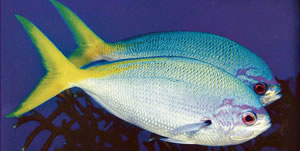
Two yellowtail on the hunt
But it’s the book’s message that will prompt readers to ask questions about Hawaii’s aquarium industry.
For starters, it doesn’t feel like you’re reading a book. Instead, it’s as if Wintner is having an informal but serious conversation with readers. He is humorous, incredibly honest and he makes it crystal clear where he stands on Hawaii’s aquarium industry.
Wintner provides commentary as to why he believes Hawaii’s ocean creatures need protection from an industry that has no limit on its catch or the number of catchers, and no constraints on rare and endemic creatures.
“Ninety-eight percent of the marine fish in pet shops are taken from reefs, not captive-bred,” says Wintner. “Some promote tank-raised or tank-friendly green washing an amusement that is strip-mining reefs worldwide. The Hawaii aquarium trade must stop.”
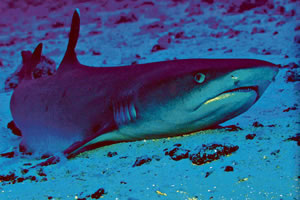
A napping white-tip reef shark. Photos courtesy Robert Wintner
As I read the book, I found myself asking questions I never asked before and, for some reason, kept picturing Nemo the clownfish made famous in Finding Nemo desperately trying to get my attention.
For several years, Hawaii lawmakers have considered measures aimed at limiting the number of reef fish caught in our waters and then sold as part of the aquarium trade. Supporters of these measures like Wintner have testified that 5 million to 6 million fish are taken from our reefs each year for sale as aquarium fish.
“Sixty percent of fish going are herbivores, and we have a terrible algae problem on many of our reefs,” Wintner testified in 2008 on a proposed bill that would have placed a bag limit of 20 ornamental fish per person, per day with no more than five being yellow tangs. “Yellow tangs are being shipped out by the millions.”
The measure died.
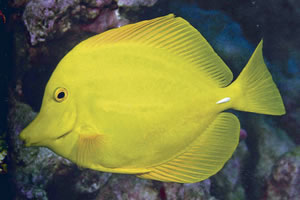
A yellow tang
In early November, the topic resurfaced in a debate that interestingly brought out the same people who catch and sell these fish, pushing for more rules and restrictions. Several aquarium and fish collectors say they want restrictions on gear, how much you can catch and which fish should be off-limits.
According to some collectors, the collection and sale of reef fish for aquariums is an industry that averages about $395,000 per year on Oahu and provides jobs for about 40 commercial fishers.
Conservationists believe the actual numbers are much higher.
Many collectors have asked to put a limit on net size or make various species off-limits. One even proposed putting a bag cap on certain species collected per person, per day, like no more than 100 yellow tangs.
“It still allows the taking of up to 100 tangs per day based on 30 collectors here on Oahu,” says Inga Gibson of the Humane Society of the United States. “That could equate to more than 1 million yellow tang continuing to be taken every year.”
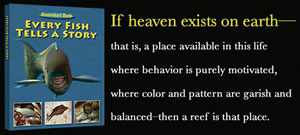
Snorkel Bob’s book is beautiful and fun
The state Department of Land and Natural Resources Division of Aquatic Resources believes any ban is unnecessary because the fishery is operating at a sustainable level.
Collectors and wholesalers obviously agree.
“I think they’re not necessary. It’s not being impacted, the number of fish aren’t going down,” says tropical fish wholesaler Jeff Preble. “There’s already very little enforcement. We don’t have people enforcing the laws that they already have.”
The topic is certainly a talker, and considering how many of us have aquariums in our homes or businesses, it’s an issue that affects us more than we know.
Certainly more than I knew, until I dove into Snorkel Bob’s Every Fish Tells A Story.



